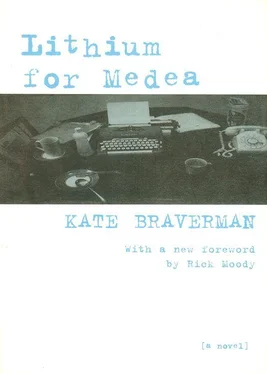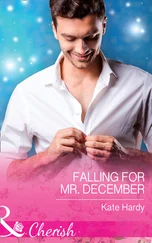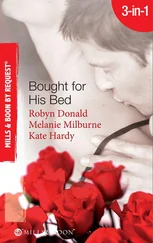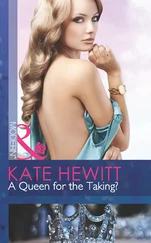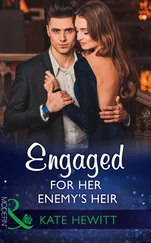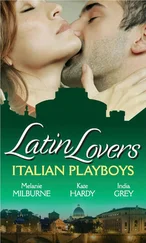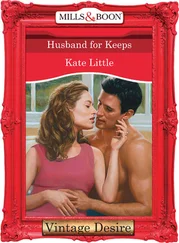Francine had just come from my father’s room. She saw me and bit her lower lip. A bad sign.
“The graft is working. I looked under the bandage. There is new pink skin.” Francine leaned closer to me. “It’s just the mental shit now. The depression.”
The light in the room was sharp and white. The wheel spins, all right. It’s got machete sides. It moves faster than light. And is it dangerous? You bet, kid.
Francine was wearing a long lavender sheath dress. I could remember when she bought it. Her first designer dress on her first business trip to Paris.
She telephoned me breathless, just back from Paris. “I kept wishing you were with me,” she said.
It was night in Berkeley. Outside my kitchen window the Bay Bridge was amberish, a line of gouged-out eyes. Gerald was studying mathematics then. It was the era of the slide rule, equations and chalk board of symbols that were going to make Gerald well, going to make him whole.
Or was it later? Suddenly I remembered that Gerald had begun a process of physical transformation just before he left me. He decided that he needed a strong body.
“Strong,” Gerald demanded of the mirror. He punched his fat belly with his fist. “How can the universe be an orchestra if the body is badly tuned?” Gerald asked the mirror. Perhaps the mirror answered.
He joined a yoga club. He did special breathing exercises. He was given a Xeroxed copy of a diet consisting of certain fruits, nuts and brown rice. He taped the diet to the refrigerator door. He informed me that I could no longer cook for him. My vibrations were wrong. My aura was wrong. My karma was a pile of shit.
“Are you telling me I contaminate your food?” I was getting ready for work at the restaurant. I had already pinned up my hair and squeezed into my short black waitress skirt.
“You don’t see fat people in healthy societies,” Gerald said. “Western culture kills for pleasure.”
“Are you talking about chickens and cows and things?” I was going to be late for work, I was certain.
“The body is a holy temple. And they’re not things,” Gerald corrected. “They’re life forms.”
Whenever Gerald spoke about life forms, his voice became somehow dreamy. When he spoke about life forms, I felt I was standing on the bridge of the U.S.S. Enterprise . First Officer Spock was staring into a painted tin can. It might have been a tomato juice can with the label removed. Captain James T. Kirk was looking into what might have been a small flashlight.
“What is it, Spock?”
Spock shook his head with its gracefully pointed plastic ears. He tried to look green and grave. “Most curious readings, Captain,” he told the tomato juice can. “An entirely new life form.”
“A new life form?” Kirk whispered, stunned and breathless. He made it sound as if they had never encountered bizarre species before.
“A new life form,” Kirk repeated. “But can we use them? Can we force them to join the Federation? Can we tax them? Farm them? Eat them? Most of all, can we fuck them?”
“I kept wishing you were with me,” Francine repeated. “I wanted you to see Paris with me. Imagine a city where they even sculpt statues under bridges. Imagine a city with that sense of beauty.” Francine seemed humbled and awed.
I tried to imagine. I was holding the phone in one hand and stirring a pot with the other. The steam rising was a soft white veil between me and Gerald. My mother was saying that she went by herself to the flea market at Clignancourt. She mastered the intricacies of the Métro. I held the telephone and felt like an insomniac poisoned by fatigue. I couldn’t wake up. I was intimidated by her vision of the City of Light and her appetite, her appetite.
My mother told me she walked her shoes down to nails. She walked and wanted more, more. The river was not enough. She gobbled up bridges, monuments, both banks. I imagined she could have walked to Normandy in her fur coat and tennis shoes, her seven weeks of Berlitz.
When my mother described the river to me I saw it as somehow waterless, containing stale things, hopeless and gray. I thought if I had gone with her, my feet and hands would have turned into stone. I would not have returned. I would have become the spine of a sixteenth-century bridge, catatonic and without eyes. And Francine was telling me about the Tuileries, where she touched pink and red flowers to her lips. She wanted to name and breathe everything. She ate dinner on top of the Eiffel Tower with the city below glowing, an immense perfect circle cut by a river that even in the darkness seemed alive, seemed to sway and breathe.
Gerald glared at me from the living room. Even my hushed voice was an intrusion. Gerald did not care about my mother’s trip to Europe. Paris was a symbol of Western culture, decadent, draped in the sins of imperialism, and spent. Gerald was concerned only with meaningful journeys. He wanted to go to Andromeda. He wanted to go through the black holes of space. He wanted to go back into the Pleistocene with a camera and snap photographs of Homo erectus discovering fire. And back even further to trilobites, lava flows, invertebrates. Would that be back far enough?
“What are you staring at?” Francine asked.
“I was remembering that dress.”
“My first trip to Europe.” Francine smiled. “You remember? I wanted to take you with me. But you refused. You were married to that sick jerk. You should have left him and come with me.”
I nodded my head. She was right.
“I finally had dinner with Bernard,” Francine began.
Was Bernard the one with the six-picture deal and the legal separation? The one who was going to take tennis lessons? Or was he the psychiatrist with debilitating inertia and a drinking problem? Was he the goddamned man in the moon?
I stopped listening. I could feel the white chips in the room when I moved my arm through the white air, when I moved my hand through the white air to my cup, my white cup. I could feel the hard sides of the cut-away spaces.
“How long has it been?” I asked.
“With Bernard?”
“With my father. Here.”
“Almost a month straight up. Why?”
“I’m losing track of time.”
Francine seemed to consider the possibility of losing track of time. “You don’t look well,” she observed. Suddenly she thought of something. Her eyes widened. “Remember when we were young? In Philadelphia? We got to stay home together all day and play. I made up fairy tales for you. I ironed the ribbons on your baby smocks. Can you imagine? Even the little ribbons on the collars? I’d never had a toy before and suddenly I had you. Remember?”
I said yes.
It was as if my mother and I had been children together. We baked and ironed together. We crayoned together. We waited for Daddy to come home together. Francine had a chance to be a child again. No, it was more. Francine had a chance to be a child for the first time.
Francine is leaning over my bed. It is my bedroom in the old gray stone house in Philadelphia. It is winter. Mommy makes me bundle up and put on my blue furry-looking slippers. I must whisper. I mustn’t wake up Daddy. He’s sleeping. He’d be angry if we woke him up. He would think Mommy was crazy. I pad down the cold wooden hallway behind her, down the wooden stairs to the kitchen. Why do I have to wake up in the middle of the night? “To see the first snow of the year,” Mommy says. She is making hot chocolate. But couldn’t I see it in the morning? Mommy is shaking her head no. “It won’t be the same by morning,” Mommy whispers. She explains that by morning the first snow would be scarred by footprints and tire tracks, impure, ruined. We stand at the kitchen window waiting for the birth.
It is raining. I am coloring. I am putting different dresses on my dolls. Daddy is gone. He is busy building houses. It is afternoon. Mommy is working in the kitchen. She calls to me, excited. “Look,” she exclaims, pointing out the window. I look. I see only rain. I keep looking. And there it is, in the tree directly in front of our house. A red bird. “It’s a robin,” Mommy says. And what’s the robin doing? “Building a nest,” Mommy says. “Someday you’ll build a nest,” Mommy says. “Watch.” I see the robin carrying twigs in his beak and things that look like pieces of string. I am bored. I want to go back to my coloring book. The robin flies back and forth, back and forth. Each time he returns with more twigs, more bits of brownish things. I want to color. My mother says, “Stay here. Watch the bird. See how many times he flies back and forth? Watch him struggle. See how hard it is, how long it takes?” Why do I have to watch this tiny patch of red glistening in the rain, mouth impossibly small for all the bits he somehow finds and somehow brings back again. “It’s important,” Mommy says. “It’s rare.” And Mommy and I watch the robin from the window all afternoon, watch until Daddy comes home.
Читать дальше
